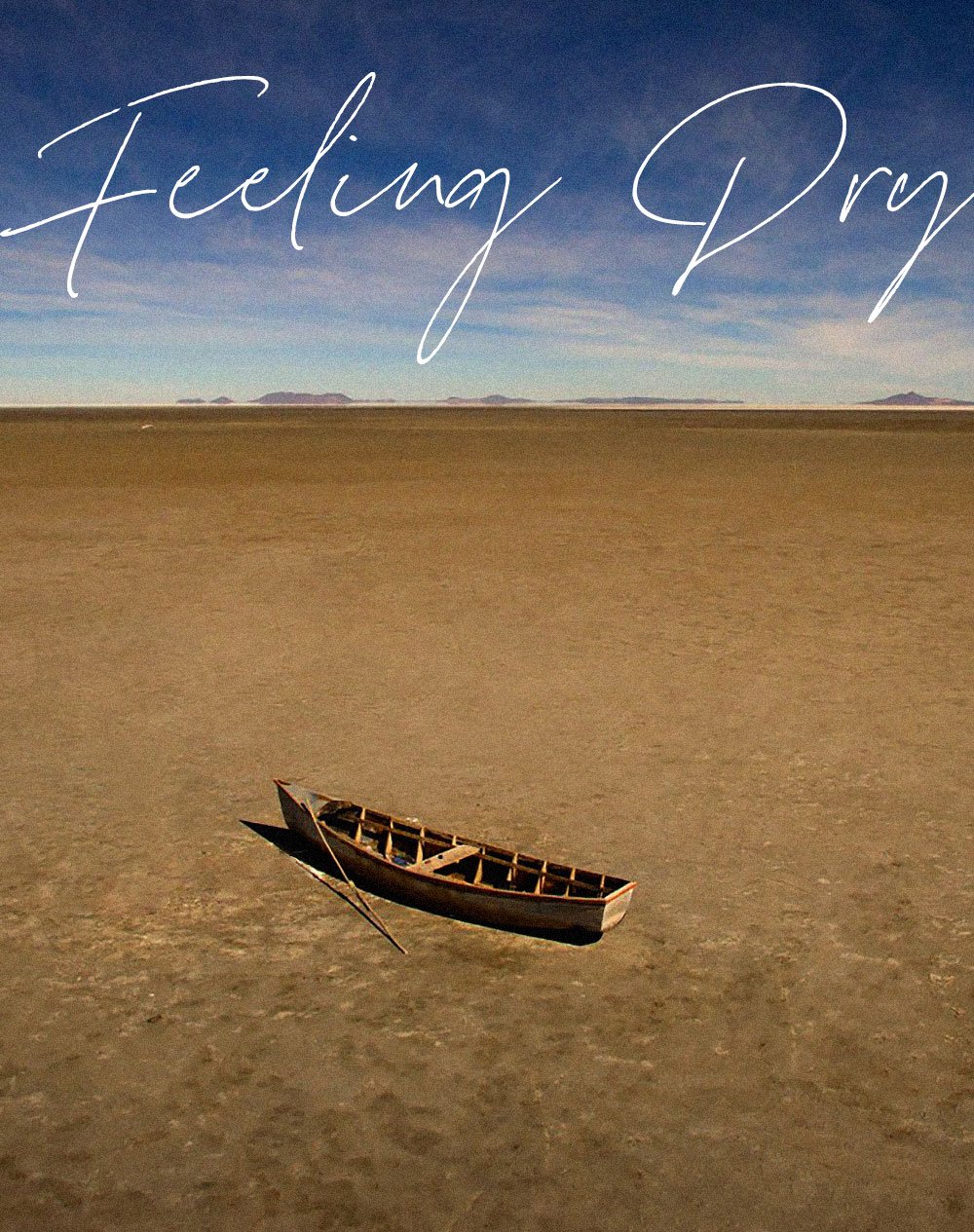One of the things 2020 tried to teach us was having a WAP is a good thing, desirable even.
Naturally, the next question on a lot of people’s lips would be, what on earth is a WAP?
According to Cardi B, a WAP is a wet ass pussy but, the acronym also has another less than sexy meaning. In the world of the internet, WAP stands for Wireless Access Point!
Whilst it could be argued that her hit song WAP and its celebration of vaginal juices should be embraced as a statement of female sexuality, independence and in some ways, dominance, it’s just as important to acknowledge that the context in which the term WAP is used, doesn’t necessarily apply to every person that owns a vulva.
Not every vagina owner has an overabundance of said vaginal juices on tap.
In fact, let’s talk about the kind of vaginal fluid one could expect to encounter.
Different types of fluid
Knowing how your body operates is important and being able to distinguish between the different types of vaginal fluid is useful.
Cervical fluids tend to change during your cycle going from a sort of sticky, mucus-like substance after menstruation to a more watery one as the oestrogen levels build back up. When oestrogen levels are at their highest, it’s likely you’re producing an abundance of fluid and feeling most wet. At this point, you’re most fertile and the fluid itself will be slippery and clear, much like a good quality lube.
Fluid is also produced in the Skene gland and contains antimicrobial properties which help to keep the vagina moist. Despite there being, much debate around whether female ejaculation is a fluid separate from urine, this is the gland potentially responsible for enabling you to squirt.
Vaginal sweat is another familiar type of wetness. This can come about as a result of sexual excitement. The increase in blood flow due to arousal, can cause swelling in the vaginal area.
It is important to note, if your discharge starts to give off a bad odour, or changes colour or texture, this could indicate infection, so having a word with your GP would be a good idea!
OK so back to the WAP for a minute. The song tells us, it’s is all about having a juicy, fully lubricated vagina that renders any penis that enters it, unable to refrain from ejaculating because of its undeniable moistness. And whilst, yes lubrication is an important factor when engaging in penetrative sex, not everyone has the ability to get wet enough!
What is vaginal dryness?
Vaginal dryness is a very real and common problem with up to one in three vagina owners, experiencing it at some point in their lives.
There are many reasons why it occurs but often, it’s due to a change in hormone levels. Going through menopause, having a hysterectomy and breastfeeding, are just some of the situations that can trigger symptoms. Underlying issues such as diabetes may also cause dryness and using perfumed shower gels and soaps can do so too.
Enjoying sex whilst dealing with vaginal dryness can be difficult. In some instances, sexual arousal may be the actual cause of the dryness, so knowing what turns you on is crucial to ensure you lubricate well and if extra foreplay is needed, then so be it. However, if the aforementioned hormone issues are causing your dryness, vaginal moisturisers are available and avoiding using perfumed products in or around your vagina would be advisable. As far as sex is concerned, using a water-based lube can be your ticket to ride… literally!
In fact, it’s safe to say, using lubes during sex is probably a good idea for anyone as it complements your body’s natural lubrication. It can also lessen your risk of injury during sex, it can introduce you to brand new sexy feels and if you’re using condoms, it goes some way towards reducing breakages.
Some of the symptoms of vaginal dryness could include:
– Pain or discomfort during sex
– Reoccurring urinary tract infections
– Soreness and itchiness in and around the vagina
– Feeling the need to wee more often than usual
Whilst some of these symptoms may rectify themselves over time or with some over the counter medications, if you are concerned or find you’re experiencing bleeding in between periods or after sex, have unusual discharge or your symptoms do not seem to be easing after a couple of weeks, speak to your GP.
Natural lubrication
The female hormone, oestrogen is responsible for keeping your vagina naturally lubricated and it is through the glands found in the cervix, that such lubricant is produced.
Vaginal discharge is normal and keeps your sensitive parts balanced.
Feeling wetness down there is a familiar feeling for most people with a vagina as lubrication occurs as part of your physiological functioning meaning, it’s not necessarily sexual arousal that makes you feel dampness but rather, it’s the result of a sort of housekeeping that regularly takes place!
As well as keeping the vagina clean and healthy, the essential lubrication can go some way toward preventing tears or injury.
How wet you actually get, depends on a few factors including your age, how much you sweat or perspire generally, hormones and your mental health. Having an infection in that area can also impact things. For example, a bout of Bacterial Vaginosis could leave you feeling more damp than usual because as a natural reaction, your body attempts to fight infection in this area by upping the ante and flooding the vaginal canal with fluid, washing away the unfriendly bacteria.
Depending on where you are in your cycle could also impact how much vaginal lubricant you produce with a notable increase as you near ovulation. This is your body’s way of aiding the fertilisation process by making the vaginal canal easier for sperm to travel through.
It’s interesting because, in a world where we seem to be up for talking about sexual health more openly, many vagina owners find it extremely difficult to discuss vaginal dryness. It’s still such a taboo subject with many quietly suffering and believing there is something wrong with them.
Knowledge and awareness can help to cancel out any potential embarrassment and encourage people to feel confident in seeking the necessary medical attention as and when. The bottom line here is, despite what they sing in songs or what is perpetuated in the media, not everyone’s vagina is like a permanently overflowing cup!
Understanding that everyone is anatomically set up differently and knowing your own body, is absolutely where it’s at!




I am a 63yr old post menopausal women who due to breast cancer am taking medication which suppresses the little oestrogen/progesterone I do produce leading to chronic vaginal dryness and atrophy, also, low libido. I have to use vaginal moisturisers (Replens) and lots of lube. We always use a brand name who are known for making condoms. This is something you are not told about while undergoing treatment but I think it should be made clear as one of the side effects.
Men everywhere should be thanking Sherry Blu for writing this ,women should also be thanking her for writing about vagina wetness. I think most men and some women have not a clue where the liquid {lube} comes from and what it does ,from lubrication to disinfecting the vagina. I grew up in the 1960s a time when the worst thing you could get was a dose the clap and a few other what are now called STDs which then were cured by a dose of medication , yes if left unchecked they could kill but not like todays STDs ..Back in the 60s sex was easy to come by we did not have the fear of Aids. Herpes and the real bad STDs of today. Then no one knew about where the lube came from and its job .Even today people do not know their own plumbing and how it looks and works .